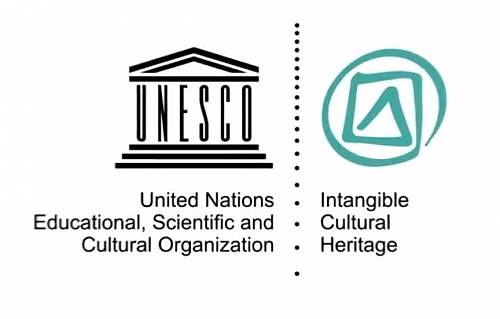Downloads:

General information
Keywords
Traditional food, cultural heritage, legacy, GPI, PDO, cultural identity, social value
Level

General information
Traditional food is a valuable asset of a community, region or nation. Each country has been developing for centuries a wide repository of knowledge on how to feed people in a pleasant and efficient way, using the products and means that were available to them. This knowledge includes farming and livestock, conservation and preparation techniques, and recipes that have been created, passed down, and improved over many generations.
For many countries, its gastronomy and cuisine represent not only an attraction for tourism and visitors but also a sign of identity to the world, and it is common for people to first know the typical food of a country before visiting it.
The enhancement of traditional food also contributes to preserving native varieties of vegetables, local breeds and ancestral techniques to manage the production, conservation, distribution and consumption of food. Each region has developed typical and indigenous varieties of many products, adapted to the territory, the quality of the land, the climate and other local conditions, creating a rich set of elements that contribute to making a necessary activity such as food a pleasure.
Governments and local institutions have worked to protect this heritage by different means. One of the most important is the PDO, Protected Designation of Origin, well known in regard to wines (Bordeaux-France, Rioja-Spain, Riesling-Germany, Porto-Portugal, Chianti-Italy), but also applicable to cheeses, hams, and other foods. This label guarantees the origin and the artisanal technique of making the products. Also significant is the Protected Geographical Indication (PGI ) that ensures the origin of products that have outstanding flavour or properties.
Furthermore, UNESCO and other institutions have recognized some foods and diets as part of the Intangible Cultural Heritage of Humanity, being the case of the Mediterranean diet, present in much of Europe. This recognition supports the need to spread and promote this way of eating for its undeniable benefits for people's health and for the natural, social, and economic environment.
Description
Traditional food is a valuable asset of a community, region or nation. Each country has been developing for centuries a wide repository of knowledge on how to feed people in a pleasant and efficient way, using the products and means that were available to them. This knowledge includes farming and livestock, conservation and preparation techniques, and recipes that have been created, passed down, and improved over many generations.
Labels
Benefits
Traditional food has multiple benefits, such as:
- Health benefits, since traditional food is natural and little processed, uses natural preservatives such as salt, spices, oil, or smoke, thus excluding chemical or industrial means for its conservation and preparation. In addition, a traditional diet contributes to reducing obesity, preventing cancer and other diseases.
- Benefits for local economies, helping to maintain traditional farming and livestock, generating work and being the basis for the development of new businesses such as rural and gastronomic tourism, cultural routes, local trade, etc.
- Benefits for rural societies, by promoting the economic development of these areas, which contributes to fixing population in the regions, avoiding the abandonment of the countryside.
- Benefits for the environment, since traditional local cultivation preserves the quality of the land, uses less water and energy and avoids the transport of food between distant territories.
- Benefits for the cultural identity of peoples and regions, due to their intrinsic value as a heritage that differentiates territories and enhances awareness of the identity of communities and peoples.
Representative Products
All natural and local varieties of vegetables, breeds and food characteristic of a region or territory, and specially those depicted in the Mediterranean food pyramid
Risks
N.A.
Further references
Article: Mediterranean diet as intangible heritage of humanity: 10 years on.
https://www.sciencedirect.com/science/article/abs/pii/S0939475321001812#:~:text=The%20Mediterranean%20diet%20was%20acknowledged,of%20food.%E2%80%9D%20%5B4%5D
https://ich.unesco.org/en/RL/mediterranean-diet-00884
https://www.bbc.com/future/article/20190222-the-hidden-significance-of-what-we-eat
Edible Identities: Food as Cultural Heritage (Heritage, Culture and Identity) 1st Ed. By Ronda L. Brulotte (Author)
https://www.forbes.com/sites/ceciliarodriguez/2021/03/31/why-these-8-foods-are-cultural-heritage-you-must-try-at-least-once/
https://www.takingcharge.csh.umn.edu/explore-healing-practices/food-medicine/how-are-food-and-environment-related
 Play Audio
Play Audio

